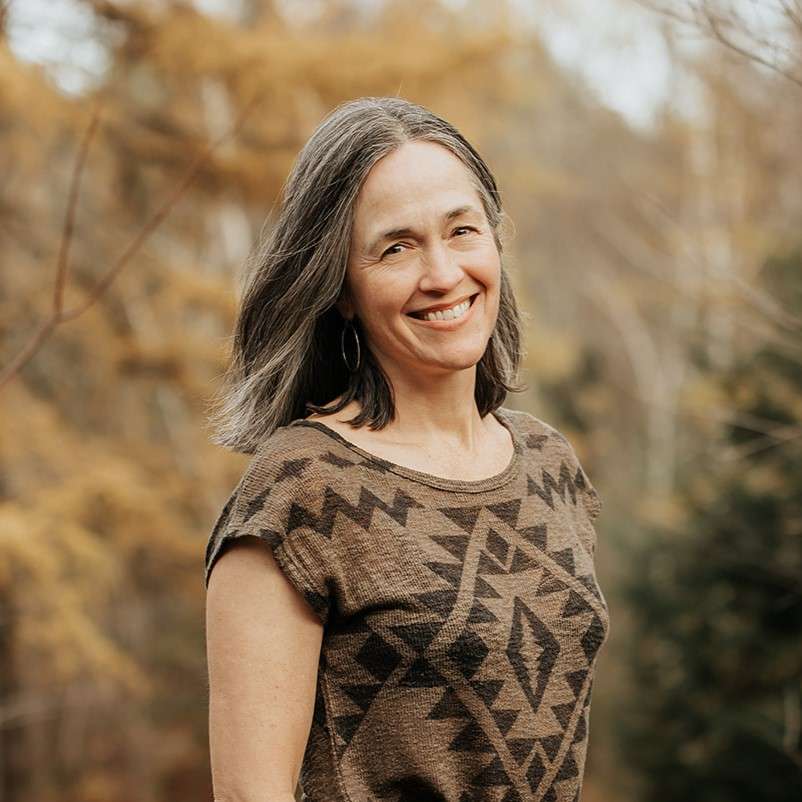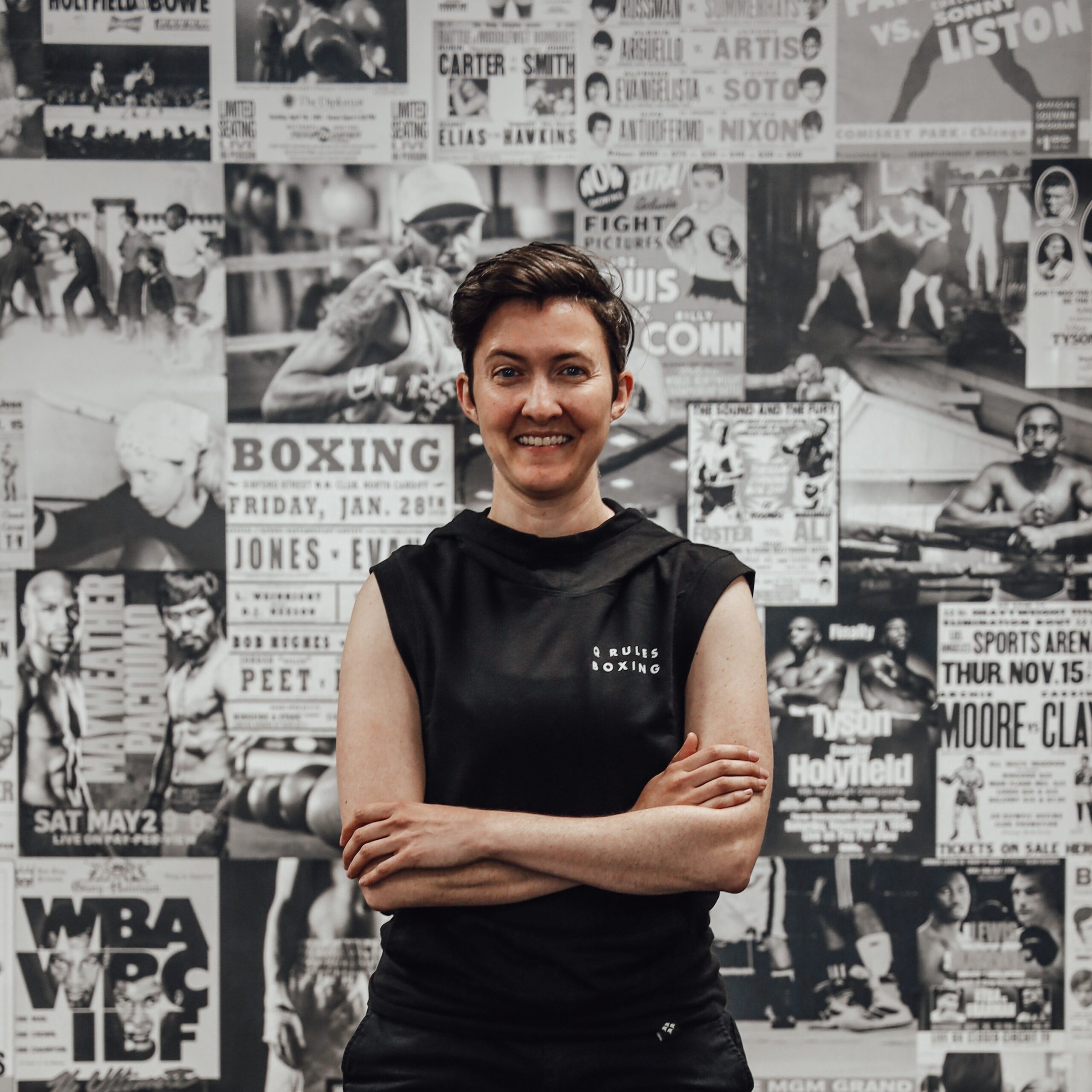
Jody Nelson
Director, Learning & Engagement
Moonlighting, freelancing, gigging, side hustles, or just a second job – those who work in community often live their values and passions, or their survival (as the case may be) after-hours or on weekends.
Here in Unama’ki (Cape Breton), on this island that I love, there’s a long history of resilience; cobbling together sources of income to get by or heading west when the options ran out. This puzzling together of income streams is a part of the culture here. I co-lead a community project called the Culture Exchange – a growing network of learning hubs around rural Unama’ki that support women in sharing and learning culture-based skills with the potential of developing micro-enterprises to supplement their household income. AKA side hustles. In case you’re wondering – yes, if your “day job” is parenting, it is still a side hustle or a second job to take on more!
These side hustles can contribute to our wholeness, our growth, and our ability to commit our hearts, minds, and bodies to a sector that is often too precarious to have our backs. While we should work toward and hold the expectation that full-time jobs provides enough financial security to live comfortably, side hustles offer autonomy to people, especially in times of uncertainty. As a single mother, I have had a lot of experience with this. Without job security or adequate compensation, many of us rely on our ingenuity and resilience, alongside the flexibility and people-centred approaches of employers, to make a living we can count on.
In this blog, I want to speak to how side hustles can contribute to our financial security and emotional wellness, and empower us to take back our place in the system. We can be in control of our own circumstances while also testing ways to contribute to community or carve out new identities and paths for ourselves.
Side Hustles are not a Level Playing Field
Where you live, your gender, sexuality, race, ethnicity, ability, and even your last name can play a big part in your opportunities and options. It’s important to note that the choice to take on side work is not a level playing field. Historically marginalized and under-served communities don’t always have the privilege of choice. Sometimes that means having no choice but to take on additional jobs to survive; sometimes that means not being able to take on extra work due to physical or mental barriers; and sometimes that means creating unique jobs and means of survival due to being labelled “unproductive” in a profit-driven society.
Growing up, our kitchen table had a stack of mending for the local dry cleaner. The income was for the ‘extras’ but that’s relative, like “enough” food or gas. A safety net. With inflation on the rise, the pressure to make ends meet is pushing many households to a breaking point. Nearly half (41%) of Canadians plan to turn to side hustles to fill the gap not provided by secure employment and living wages.
There is inequity regarding who chooses a side hustle, and who does so because they have no choice – which type of work is valued, and who’s labour is valued. The COVID-19 pandemic offered a clear example of how this plays out. Those of us with the privilege of a steady job worked safely from home, while precarious workers took on the risk to make that possible – like providing front line supports and delivering our groceries.
Many side hustles could more accurately be described as a second job – waiting tables, Uber driving, general labour, keeping books, etc. Wendy Cukier, Professor of Entrepreneurship and Strategy at Toronto Metropolitan University spoke on CBC’s “The Current” about how gig work has the potential to exploit people, or even bypass labour standards. People forced into these situations to make a living, such as newcomers, lack labour protections. Additionally, they’re also not developing pensions, unemployment insurance, and other supports. And we’ve seen this with cab drivers for decades. It is with these many grains of salt that we consider the upside of side hustles for individuals, organizations, and the sector.
Evolution of the Side Hustles
Side hustles are far from new, often criticized for their capitalistic striving, synonymous with ‘grind culture’ or ‘hustle culture.’ These phenomena are symptoms of how capitalism effects our lives, work, and choices. While some people are seeking additional income, others are seeking greater life satisfaction through a different type of work. Particularly in the wake of the stress and the overwhelm of the pandemic, it’s interesting to see a new culture taking hold. One where we are called to be more than our jobs. One where we might be free to explore energizing opportunities in our personal time.
I have often balked at generational references, but it comes in handy when making sense of the change that is underway. “Gen Z” entered the workplace in the COVID-era and at a social breaking point. They’ve witnessed the downfall of the capitalist promise of “Working hard to get ahead.” This phenomenon is well-described in this excerpt written by Sam Parker for the Guardian:
Gen Z stand up to their employers in a way no previous generation has, something usually dismissed as a spoiled sense of entitlement. But in record numbers, they are also mobilising to establish incomes that don’t rely on their elders. They’re drop shipping, Amazon reselling, flipping designer sneakers, spread betting, investing in crypto and NFTs. They’re inventing their own cosmetic lines for TikTok, or selling homemade teeth grills on Instagram. They want to be famous on social media not just because it feels good but because they can monetise it in shrewd ways. Some people call it a new golden age of entrepreneurialism, others the rise of the side hustle. But at the core of Gen Z’s attitude to work is a desire as old as capitalism itself – to be financially independent, to opt out of old-fashioned ideas, like having a boss, altogether. All of which begs the question: is the problem that they have unrealistic expectations and don’t want to put the graft in? Or do they – gulp – know something we don’t?
In a digital economy with web-based enterprises and remote work, the landscape of how we build a living and forge new opportunities has changed, creating more access to participation. The pandemic challenged rigid, long-standing narratives about workplace norms – like being present in the office, 40-hour work weeks, and burning out to put work above all else. We have built trendy language around this shift, like “The Great Resignation” and “Quiet Quitting.” And it is a shift, but in reclaiming autonomy. Workers just aren’t willing to carry on as we did before. It’s hard not to see these gigs as creative, independent new ways of living our work.
Experimentation
What do you want to be when you grow up? Besides the fact that I’m still not sure I am a grown up (or want to be), I am forever on the journey of learning what I want to be. Nick Loper, from Side Hustle Nation, says, “The truth is none of us know what we want to do in our lives…We find out by throwing sh*t at the wall to see what sticks. That’s what an after-hours side hustle gives you. Data. Evidence. Proof of work. Time in the game.” (reference).
I had the pleasure of professional development coaching with Saralyn Hodgkin from Holon Leadership, when I arrived at an ‘aha’ moment. This squiggly journey I have taken throughout my life is a career path. I’m an ever-evolving, growing version of what I want to be. Saralyn dubbed it, “Meandering”, and together we unpacked what that meant for me: trying things, following what I need in the moment, shaping it into what I want it to be, doing what I love every day, contributing to community, and maintaining security.

The opportunity to explore business opportunities while maintaining stable work, is partly about long-term financial resilience, but also about my own learning and development, pursuing my passions, and building my capacity and energy to be a more fulfilled human, and employee. If one day that leads into full-time self-employment, then I’ll know I would have been supported along the way to make that dream a reality.
Aimee Gasparetto (she/her)
Every One Every Day | Mi’kmaw Native Friendship Centre
Side hustles can be an invitation to try new things, learn things, and even fail without risking everything. Side hustles take us out of our comfort zone, challenging us to enter new social and professional networks, to think differently, and to set a different rhythm in our lives. They can give us space to better understand ourselves, define ourselves, and even reinvent ourselves. All on our own terms.
“The opportunity to explore business opportunities while maintaining stable work, is partly about long-term financial resilience, but also about my own learning and development, pursuing my passions, and building my capacity and energy to be a more fulfilled human, and employee,” shares fellow side hustler, Aimee Gasparetto, who’s day job is in the Community Impact Sector. “If one day that leads into full-time self-employment, then I’ll know I would have been supported along the way to make that dream a reality.”
What does this Mean for Employers?
It can be a win-win. All that learning, entrepreneurialism, networking and energizing flow state? It all comes back to you. “Any impact coaching has on my work and career is all positive,” says Lisa Buchanan, United Way Halifax/ queer boxing class coach, “A big part of my day job is hosting gatherings. Coaching a boxing class is another way for me to practice my skills as a host. It’s particularly good for practicing adaptability and going with the flow.”
The conversation of side hustles came up with the IONS team when discussing our assumptions and expectations for the 4-Day Work Week pilot. Though the additional time off was meant for rest, combatting burnout, and taking care of our mental health – we recognized the equity implications of restrictive policies. Sometimes our mental health is dependant on being able to generate extra income; sometimes it is restful to have the space to be able to create; sometimes we are combatting burnout with our side hustles.
It can be uncomfortable challenging traditional workplace norms. Side hustles require flexibility and trust. Instead of a stringent policy, consider a conflict-of-interest policy instead. Evaluate on a case-by-case basis, especially when it comes to equity implications. How about being supportive, rather than prohibitive; encouraging employees to follow their interests and passions by providing the necessary flexibility? As far as performance related concerns go, this should show up in general performance appraisals – are they maintaining accountability to projects and team members? (reference)
“I think no policy can replace good relationships,” says Tyler Colburne, Healthy Minds Cooperative / photographer. “If someone was considering a side hustle or had other opportunities that might require shifts in work schedules, I think a conversation about accountability and impact is required. Having good relationships means you can find a solution for most things. I think we should be striving to support people in doing things that bring them joy or allow them more freedom.”
Even on a small team like IONS, we have different needs and approaches around what energizes us, when we rest, and when we lean in. Some of us take part in side hustles, and some of us don’t. What’s important is that we’re actively creating a work environment and team culture where we feel supported and accountable to each other and our work. “The question of how and when to support my team’s side hustles has shown up in many ways in my role as a leader,” shares Annika Voltan, IONS Executive Director. “I’ve had to sit in spaces of discomfort and unlearn my aversion to the potential risks of conflicts of interest and what it could mean for people’s ability to effectively do their “day job.” In the process I’ve learned that taking a supportive approach and trusting that we each know what will serve us best deepens commitment and enables growth.”

Any impact coaching has on my work and career is all positive. A big part of my day job is hosting gatherings. Coaching a boxing class is another way for me to practice my skills as a host. It’s particularly good for practicing adaptability and going with the flow.
Lisa Buchanan (she/her)
United Way Halifax / Boxing Coach
Embracing the Meander
My side hustles make me better at my job. When I am working after hours on something that is mine, something I care about, something creative – it doesn’t feel like a hustle. I feel like I am winning the game when I get a pay cheque for something that I created. My teenage boys, who have grown up watching me piece a living together, are already making dynamic career plans. They’re already anticipating wanting to be more than their job or pursuing multiple careers that are complimentary. IONS lives by the values of courage, trust and abundance. I would add the value of growth, ‘Meandering my way into the many versions of who I want to be when I grow up’. The next time someone asks, “So, what do you do?” I will lead with what I am exploring on the side.
Curious to hear more about some of Nova Scotia’s Sector Side Hustlers? Stay tuned for the upcoming stories featuring Community Impact Sector creatives, innovators, and builders.
Additional Resources
Considering starting a side hustle? Or re-evaluating one? Here are a few resources to get you thinking:
-
- Side Hustle Nation’s list of 100 ideas from professional snuggling to doula service, to pet waste removal!
- Some considerations when starting a side hustle: Is Starting a Side Hustle Really Worth it?
- Evaluating your ‘why’ and remembering to take care of yourself: Have we Forgotten How to Relax?
- Side Hustle Burnout and knowing when to let it go: What to do when your Side Hustle Becomes a Drag
- In defense of side hustles, if you love it, it’s not a hustle: Your 6-12AM Side Hustle Definitely isn’t ‘Hustle Culture’
Written by:

Jody Nelson (she/ her)
Director, Learning & Engagement
Jody leads IONS’ learning and engagement events, including hosting webinars, workshops, communities of practice, and conversations in community. She also stewards the internal culture and organizational decolonization work, which is woven through Developmental Evaluation.

0 Comments